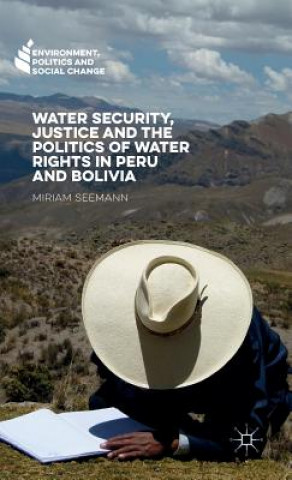
Doručenie
Nákupný poradca





Nehodí sa? Žiadny problém! U nás môžete do 30 dní vrátiť
 Darčekový poukaz
v ľubovoľnej hodnote
Darčekový poukaz
v ľubovoľnej hodnote
S darčekovým poukazom nešliapnete vedľa. Obdarovaný si za darčekový poukaz môže vybrať čokoľvek z našej ponuky.
Water Security, Justice and the Politics of Water Rights in Peru and Bolivia
 Angličtina
Angličtina
 154 b
154 b
30 dní na vrátenie tovaru
Mohlo by vás tiež zaujímať


The author scrutinizes the claim of policy-makers and experts that legal recognition of local water rights would reduce water conflict and increase water security and equality for peasant and indigenous water users. She analyzes two distinct 'top-down' and 'bottom-up' formalization policies in Peru and Bolivia - neoliberal the former, indigenist-socialist the latter. The policies have intended and unintended consequences and impact on marginalized peasants and the complex inter-legal systems for providing water security on the ground. This study seeks to debunk the official myth of the need to create state-centric, top-down legal security in complex, pluralistic water realities. The engagement between formal and alternative 'water securities' and controversial notions of 'rightness' is interwoven and contested; a complex setting is unveiled that forbids one-size-fits-all solutions. Peru's and Bolivia's case studies demonstrate how formalization policies, while aiming to enhance inclusion, in practice actually reinforce exclusion of the marginalized. Water rights formalization is certainly no panacea.
Informácie o knihe
 Angličtina
Angličtina
Kategórie




 Ako nakupovať
Ako nakupovať



































